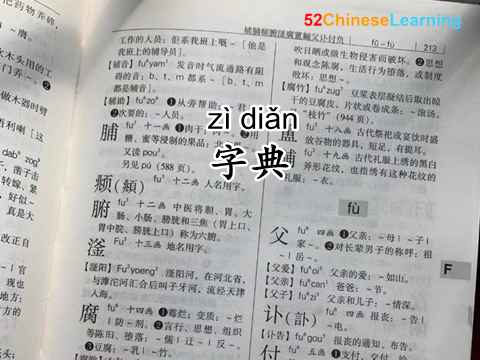链接复制成功!现在分享给好友吧。
When many foreign friends are learning Chinese, they will struggle to choose between Cantonese and Mandarin. Today, let’s talk about the difference between these two major languages in China to save new Chinese learners time in their language choice.
1. Different initials. This is the biggest difference between the two languages. Mandarin has the tongue sounds zh, ch, sh, r, but Cantonese doesn’t.
2. Different finals. Another major difference is that there are nasal finals with M in Cantonese, and finals with B, D, and G (that is, entering tone), but not in Mandarin.

3. Different tones. There are only four tones in Putonghua: Yinping, Yangping, Shangsheng, and Qusheng. There are additional 5 more tones in Cantonese. These are: Yin Ping, Yang Ping, Yin Shang, Yang Shang, Yin Qu, Yang Qu, Yin Shang, Yin Xia, and Yang Yin.
4. Basic vocabulary is different. Such as “crying” in Putonghua and “shouting” in Cantonese. When you mean “station” in Mandarin it will translate into “enterprise” in Cantonese. The word for “sleep” in Mandarin means “train” in Cantonese. However, there are similarities too. Like when you say “look” in Putonghua it will mean the same in Cantonese. Whenever someone says “eat” in Putonghua a Cantonese will join them for a meal.
5. Different grammar or the word order is different, such as Mandarin saying “I’ll go first.” Guangdong says, “I go first.” They also have different function words, such as “I’m studying” in Mandarin. Guangdong says, “I study hard.” Wait a minute.
6. Different statuses. Putonghua is the national common language, and it is a legal formal communication language. Cantonese (also known as “Cantonese”) is a dialect of Chinese.
7. Different geographical usages. Putonghua is widely used in China, while Cantonese is only used in most areas of Guangdong and Guangxi, Hong Kong, and Macao.
8. The language itself is different. Including pronunciation, vocabulary, grammar, and other different aspects.
1. The first step in learning words is to train your ears and hear the difference between different sounds. Different languages have different phonemes. When you learn Cantonese, at least half of the sounds you will encounter, you have never heard in your life. Generally, people are not very sensitive to foreign sounds. That’s why most people have a hard time differentiating between languages For example, there is no such sound in Mandarin (E in Cantonese is different from E in Mandarin, which means a short A sound). That’s why when Cantonese speakers say “chicken gei1”, it is usually confused with “gai1” on the street. You need to pay attention to the difference between these sounds when learning.
2. The second step in learning words is to train your mouth. Sometimes you know how to pronounce that sound, but when you speak, you will unconsciously pronounce another sound or stammer. Why is this the case? That is because there’s a thing that we call “lip service”? That occurs when you’re not proficient enough in the language. Consequently, your mouth has a hard time adjusting to the pronunciation. Another factor is that your Pronunciation is unconsciously influenced by your mother tongue. The only solution is to train your mouth by speaking more.
3. The third step in learning Chinese is to train your eyes. When listening to others, you should not only listen to their voice but also look at their mouth. You must trace how his mouth moves and what his mouth looks like. For example, in Cantonese, the pronunciation of “Dian” and “Dian” is very similar. The pronunciation of Dian din2 ends with closed lips, while that of Dian dim2 ends with closed lips. If you can see the difference, You won’t confuse these two sounds.
There is a standard rule to learning Mandarin quickly. That is: listen more, practice more, and repeat. However, there are specific points that you need to highlight in learning Chinese. You should focus on pronunciation, grammar, and vocabulary. Differences in Chinese are highlighted in phonetics. Not only are there great differences in phonetics among major dialect areas, but also in regional dialects. All the differences of the Chinese languages differ greatly in pronunciation. Conversely, there are small but still significant differences between dialects and Putonghua in terms of vocabulary and grammar. It can be said that phonetic differences are the main reasons for communication difficulties. Therefore, the key to learning Putonghua is to learn the standard pronunciation based on Beijing pronunciation. To learn pronunciation, we must concentrate on oral and ear training to learn it well.
1. How to learn Mandarin pronunciation
Accurate pronunciation is the most basic requirement of phonetic learning. Whether the pronunciation is accurate or not is related to the ability to listen and distinguish between words. Consequently, we should first improve the resolution of pronunciation. On the basis of mastering the correct pronunciation, it is necessary to achieve complete proficiency through repeated practice.
Pronunciation refers to mastering the standard pronunciation of Chinese characters and words in Putonghua. Simultaneously, you should also try correcting the phonetic habits due to dialect influence. So one needs to deconstruct their innate habits through memory training. The difference between dialect and Putonghua pronunciation is not irregular. If we know the corresponding rules of dialect and Putonghua pronunciation, we don’t have to memorize them word by word, but we can memorize them one by one. On the basis of pronunciation, we should gradually apply it to the actual oral language through reading aloud and conversation practice.
These are the differences between Cantonese and Putonghua and the learning suggestions. Generally speaking, language learning is a long-term process. If you speak more, listen more and practice more, you will learn more and learn easily!
Your first 1-on-1 Chinese lesson offer